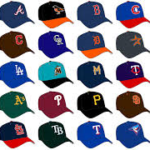Interpreting on the Ball Field: A Look at MLB’s Requirement for All Teams to Have Full-Time Spanish Interpreters
Last May, Houston Chronicle reporter Brian T. Smith tweeted this quote from Houston Astros center fielder Carlos Gomez: “I really not do much for this team. The fans be angry.”
The tweet – and the news article where the quote was also published – sparked a backlash of angry readers, who criticized Smith for weak and unprofessional reporting.
“C’mon man,” one response reads. “You could of easily edited that headline or simply not used it at all.”
Another response: “really man? Trying to make a guy look unintelligent because he is not playing well? Unprofessional.”
 Smith’s story appeared six months after the Major League Baseball network required each of its 30 teams to have at least two full time Spanish language interpreters. According to the Institute for Diversity and Ethics in Sport, Latino players made up almost 32 percent of the MLB’s 2017 Opening Day Rosters, up from nearly 29 percent of the Opening Day Rosters in 2016. Of the 259 total non-U.S.-born players on the 2017 Opening Day Rosters, 227 hailed from Spanish-speaking countries.
Smith’s story appeared six months after the Major League Baseball network required each of its 30 teams to have at least two full time Spanish language interpreters. According to the Institute for Diversity and Ethics in Sport, Latino players made up almost 32 percent of the MLB’s 2017 Opening Day Rosters, up from nearly 29 percent of the Opening Day Rosters in 2016. Of the 259 total non-U.S.-born players on the 2017 Opening Day Rosters, 227 hailed from Spanish-speaking countries.
Prior to 2016, MLB teams still depended on interpreters, but interpreters were hired at the discretion of individual teams, on an as-needed basis. Often, teams bridged the language gap informally, relying on bilingual team members or coaches to step up during important team discussions or to assist native Spanish speakers during interviews with the media.
MLB’s mandate for each of its teams to hire full time Spanish interpreters was in part to allow native Spanish speakers to better communicate and express themselves in the media, according to a 2016 CBS Sports article. Players with limited or no English proficiency – like the Houston Astros’ Gomez – don’t always find it easy to speak candidly to the media. From a professional standpoint, interpreters can help those players better communicate their thoughts and responses.
The MLB hosts English language learning programs at various levels. But USA Today’s Ted Burg questions the priority of a limited or no English proficiency pro baseball player learning English, when he is in the United States to play baseball. “… the truth is, learning a second language as an adult is extremely difficult,” Burg writes, “and ballplayers from the Dominican Republic and Cuba and Venezuela are paid for their ability to hit home runs and snare line drives and throw 95-mph fastballs — all of which are also really, really hard to do.”

The 2016 decision to require full time Spanish interpreters on every MLB team was in part a response to the more formal arrangements of teams hiring interpreters for native speakers of Asian languages. Outfielder and Japanese native Nori Aoki’s 2016 contract with the Seattle Mariners provided $50,000 toward his own interpreter. This year, Saint Louis Cardinals’ reliever, South Korean native Seung Hwan Oh, was greeted by his full time interpreter, Eugene Koo, as soon as he arrived in Jupiter, Fla., for spring training. According to the MLB, “Koo defines his job description as part personal assistant, part comrade, part forced best friend.”
No one has said much about the MLB’s mandate for each of its teams to have full time Spanish interpreters on staff since the decision was passed down in 2016, at least not publicly. Learning a foreign language is hard work – especially as an adult. But so is being a professional ball player. The Spanish interpreters employed by MLB teams surely have their work cut out for them. But so do the 34.5 percent of this year’s Opening Day rostered players who were born outside of the United States.














